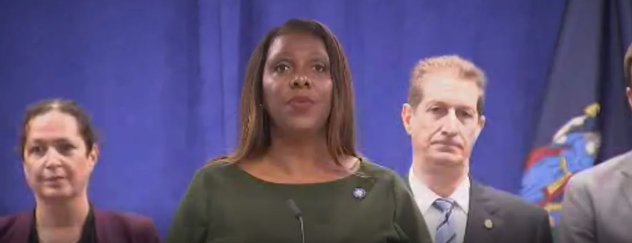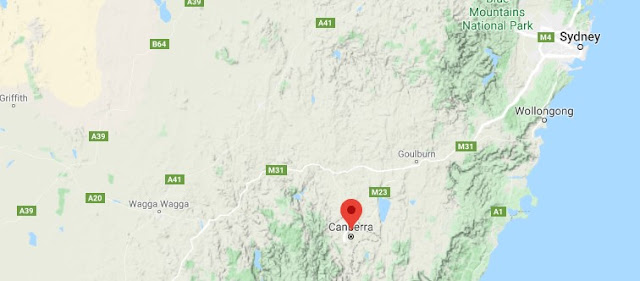..
Trump Organization found guilty of years-long tax fraud scheme
By Luc Cohen and Karen Freifeld Reuters
Posted December 6, 2022 1:03 pm
Global National: Dec. 3
Donald Trump’s real estate company was convicted on Tuesday of carrying out a more-than 15-year-long criminal scheme to defraud tax authorities, adding to the legal woes facing the former U.S. president as he campaigns for the office again in 2024.
The Trump Organization – which operates hotels, golf courses, and other real estate around the world – faces fines over the conviction. The exact amount will be determined by the judge overseeing the trial in New York State court at a later date.
The company pleaded not guilty. Trump himself was not charged in the case.
While the fine is not expected to be material for a company of the Trump Organization’s size, the conviction by a jury could complicate its ability to do business by spooking lenders and partners.
The case centered on charges that the company paid personal expenses like free rent and car leases for top executives including former chief financial officer Allen Weisselberg without reporting the income, and paid them bonuses as if they were independent contractors.
“The smorgasbord of benefits is designed to keep its top executives happy and loyal,” prosecutor Joshua Steinglass told jurors during his closing argument on Friday.
The Trump Organization separately faces a fraud lawsuit brought by New York state Attorney General Letitia James.
Trump himself is being investigated by the U.S. Department of Justice over his handling of sensitive government documents after he left office in January 2021 and attempts to overturn the November 2020 election, which he lost to Democrat Joe Biden.
Weisselberg, 75, testified as the government’s star witness as part of a plea deal with prosecutors that will allow him to spend no more than five months in jail.
The Trump Organization argued that Weisselberg carried out the scheme to benefit himself. He is on paid leave from the company and testified that he received more than $1 million in salary and bonus payments this year.
“The question here is not whether as a byproduct the company saved some money,” Susan Necheles, a defense lawyer, said in her closing argument on Thursday. “(Weisselberg’s) intent was to benefit himself, not the company.”
Trump wrote on his Truth Social platform on Nov. 19 that his family got “no economic gain from the acts done by the executive.”
Although, keeping top executives might be considered gain.
Republican Trump, who on Nov. 15 announced his third campaign for the presidency, has called the probe a politically motivated “witch hunt.” Both Manhattan District Attorney Alvin Bragg and his predecessor who brought the charges, Cyrus Vance, are Democrats.
Shouldn't DAs be non-political?
Weisselberg, who pleaded guilty in August to concealing $1.76 million in income from tax authorities, testified that Trump himself signed the Christmas bonus checks and personally paid hundreds of thousands of dollars in private school tuition for Weisselberg’s grandchildren.
He also said Trump’s two sons – who took over the company’s operations in 2017 after Trump became president – gave him a raise after they knew about his tax dodge scheme.
“The whole narrative that Donald Trump was blissfully ignorant is just not real,” Steinglass said.
The Trump Organization also sought to argue that Donald Bender, an outside accountant, should have caught and blown the whistle on Weisselberg’s fraud.
The company called Bender as its main witness, but his testimony appeared to backfire when he said he trusted that the information Weisselberg gave him was accurate and that he was under no obligation to investigate further.
==========================================================================================
President of South Africa faces impeachment over 'Farmgate' scandal
By A.L. Lee
South African President Cyril Ramaphosa denies any wrongdoing in what has become known as the “Farmgate” scandal, claiming that nearly $600,000 in cash found stuffed in sofa cushions at his Phala Phala farm in the country's northeast were proceeds from buffalo sales. File photo by Pete Marovich/UPI | License Photo
Dec. 1 (UPI) -- South African President Cyril Ramaphosa faces impeachment after an independent investigation determined he allegedly tried to cover up a $4 million robbery at his farm two years ago in an effort to abscond with the loot.
Ramaphosa denies any wrongdoing in what has become known as the "Farmgate" scandal, claiming that nearly $600,000 in cash found stuffed in sofa cushions at his Phala Phala farm in the country's northeast were proceeds from buffalo sales.
He has not faced any criminal charges since the scandal first emerged back in June.
However, the extensive report released Wednesday by an independent South African investigative committee accuses Ramaphosa of concealing the $4 million heist and then pressuring the Namibian president into silencing the suspects following their arrests.
Ramaphosa "abused his position as head of state to have the matter investigated and seeking the assistance of the Namibian president to apprehend a suspect," the committee said in the report.
The case first came to light this past summer after the country's former spy chief, Arthur Fraser, accused Ramaphosa of working behind the scenes to conceal the caper.
At the time, Fraser publicly speculated whether the loot had come from money-laundering instead of buffalo sales, and accused the president of kidnapping and bribery.
Well after the fact, Ramaphosa finally acknowledged that the robbery happened but said the amount stolen was far less than $4 million.
"I did not 'hunt' for the perpetrators of the theft, as alleged, nor did I give any instructions for this to take place," the president wrote in a submission to the panel's report.
The findings of the investigation have been handed over to the country's parliament, which will convene early next week to decide whether to launch official impeachment proceedings.
In order to forcibly remove Ramaphosa from office, the body will have to find the president guilty of misconduct, abuse of power, and violating the constitution that he helped draft with Nelson Mandela in the early 1990s.
Leaders of Ramaphosa's party, the African National Congress, were expected to meet later Thursday to discuss the details of the report ahead of a larger political convention to decide whether the incumbent should seek a second term in 2024.
Back in Cape Town, Ramaphosa canceled an appearance before parliament and rescheduled meetings with provincial lawmakers to give himself time to pore over the findings while opposition leaders made public calls for him to step down.
"I have endeavored, throughout my tenure as president, not only to abide by my oath but to set an example of respect for the Constitution, for its institutions, for due process and the law," Ramaphosa said in a statement on Wednesday.
"I categorically deny that I have violated this oath in any way, and I similarly deny that I am guilty of any of the allegations made against me."
In the report, the panel specifically seeks an explanation for $580,000 found hidden inside a sofa that was never reported to authorities. The report further alleges that the cattle Ramaphosa claimed to have sold were still grazing on his farm.
"We think that the president has a case to answer on the origin of the foreign currency that was stolen, as well as the underlying transaction for it," the committee states in the report.
Ramaphosa was elected in 2018 and rose to power on an anti-corruption platform following the controversial tenure of his predecessor Jacob Zuma, who was sentenced last year to 15 months in prison for failing to appear for his criminal corruption trial -- a case that is still pending.
Swiss mining company Glencore settles corruption case in Congo
By Adam Schrader
Demonstrators participate in a union protest in front of the main entrance of the casino in Zug, Switzerland, in 2018 on the occasion of the Glencore annual meeting. File Photo by Alexandra Wey/EPA-EFE
Dec. 5 (UPI) -- Glencore, a mining company based in Switzerland, settled a corruption case in the Democratic Republic of Congo on Monday for $180 million.
The company announced in a news release that the settlement covers all current and future claims from alleged corruption between 2007 and 2018.
"This includes activities in certain group businesses that have been the subject of various investigations by, amongst others, the U.S. Department of Justice and the DRC's National Financial Intelligence Unit and Ministry of Justice," Glencore said in the statement.
The U.S. Justice Department in May said in a statement that Glencore had admitted to corruption by conspiring to pay $27.5 million to illegally secure business advantages in the DRC.
"The rule of law requires that there not be one rule for the powerful and another for the powerless; one rule for the rich and another for the poor," U.S. Attorney General Merrick Garland said at the time.
"The Justice Department will continue to bring to bear its resources on these types of cases, no matter the company and no matter the individual."
The settlement announced Monday marks the latest in a series of corruption cases in which Glencore has agreed to pay more than $1.6 billion in fines, the BBC reported.
More than $1.1 billion of those fines came after the company pleaded guilty in coordinated resolutions in the United States, Britain and Brazil.
Under the settlement reached Monday, Glencore "committed to continue to implement in its resolution" with the U.S. Justice Department.
Glencore's assets in DRC include the copper-cobalt mine Mutanda and a controlling stake in the Kamoto Copper Co., one of the world's largest copper and cobalt producers.
"Glencore is a longstanding investor in the DRC and is pleased to have reached this agreement to address the consequences of its past conduct," Glencore Chairman Kalidas Madhavpeddi said.
"Glencore has actively promoted its ethics and compliance program in the DRC in recent years and looks forward to continuing to work with the DRC authorities and other stakeholders to facilitate good governance and ethical business practices in the country."
An African country with ethical business practices.... Sure.

























